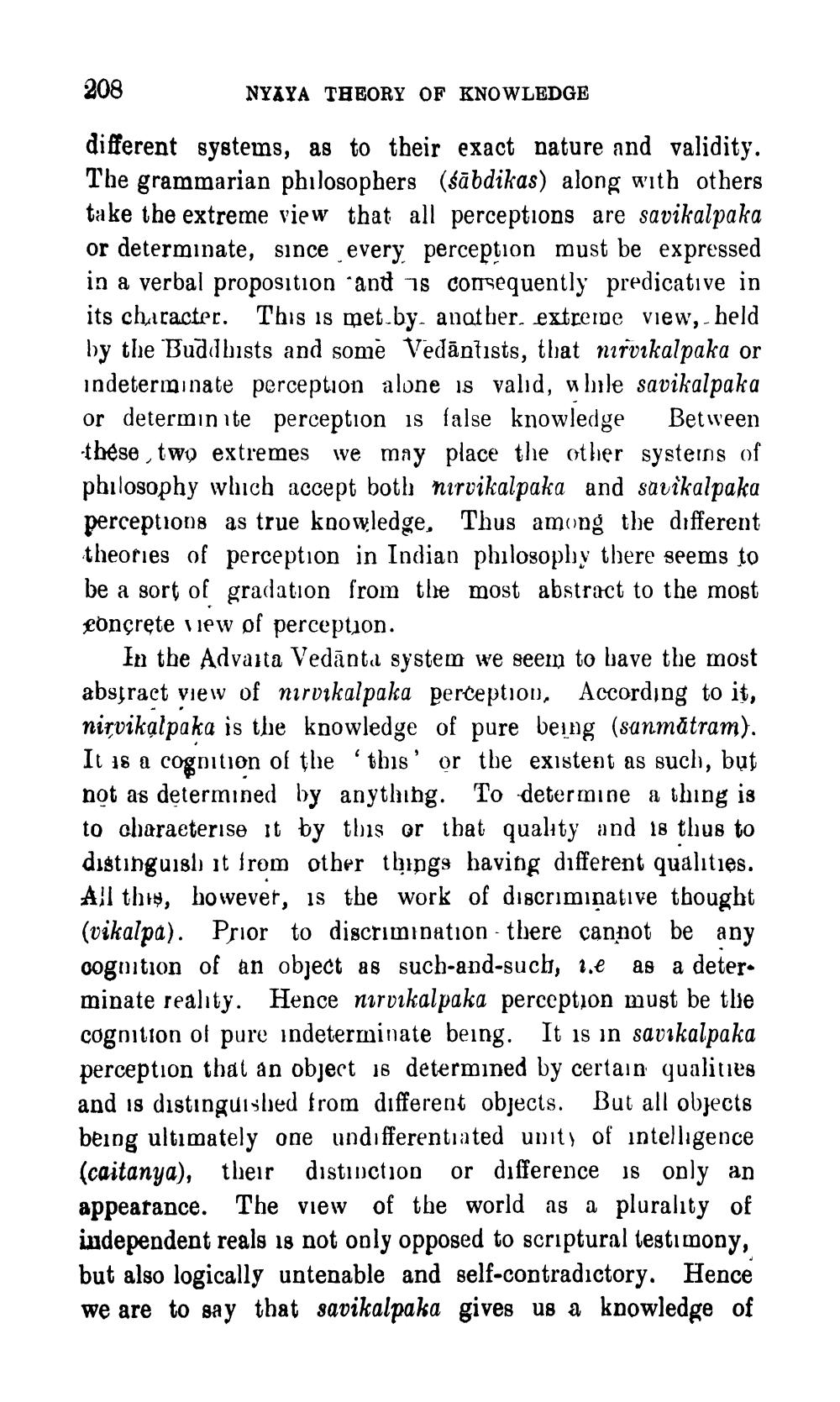________________
208
NYAYA THEORY OF KNOWLEDGE
different systems, as to their exact nature and validity. The grammarian philosophers (šābdikas) along with others take the extreme view that all perceptions are savikalpaka or determinate, since every perception must be expressed in a verbal proposition and is corrsequently predicative in its character. This is met-by- another. extreme view,- held by the Buddhists and some Vedāntists, that nirvikalpaka or indeterminate perception alone is valid, while savikalpaka or determinite perception is false knowledge Between these two extremes we may place the other systems of philosophy which accept both nirvikalpaka and savikalpaka perceptions as true knowledge, Thus among the different theories of perception in Indian philosophy there seems to be a sort of gradation from the most abstract to the most concrete vew of perception.
In the Advaita Vedānta system we seem to bave the most abssraet view of nirvikalpaka perception. Accordıng to it, nirvikalpaka is the knowledge of pure being (sunmātram). It is a cognition of the 'this' or the existent as such, bụt not as determined by anything. To determine a thing is to characterise it by this or that quality and 18 thus to distinguish it from other things having different qualities. All this, however, is the work of discriminative thought (vikalpa). Prior to discrimination - there cannot be any cognition of an object as such-and-such, 3.e as a determinate reality. Hence nirvikalpaka perception must be the cognition of pure indeterminate being. It is in savikalpaka perception that an object is determined by certain qualities and is distinguished from different objects. But all objects being ultimately one undifferentiated unity of intelligence (caitanya), their distinction or difference is only an appearance. The view of the world as a plurality of independent reals 18 not only opposed to scriptural testimony, but also logically untenable and self-contradictory. Hence we are to say that savikalpaka gives us a knowledge of




